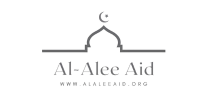In Islam, Sadaqah (sometimes spelled Sadaka or Sadqa) refers to voluntary acts of charity or giving that are encouraged as part of a believer’s faith and practice. Here’s all the relevant information related to Sadaqah in Islam:
- **Meaning and Significance**: Sadaqah is derived from the Arabic root word “Sidq” which means sincerity and truthfulness. It refers to voluntary acts of charity, kindness, and generosity performed by Muslims out of compassion and goodwill towards others. While Zakat is obligatory and has specific rules and regulations, Sadaqah is voluntary and can be given in various forms and amounts.
- **Types of Sadaqah**:
– **Sadaqah al-Fitr**: This is a specific type of charity given at the end of Ramadan, before the Eid prayer. It is obligatory upon every Muslim, whether rich or poor, and is meant to purify one’s fasts and provide for the needy to celebrate Eid.
– **General Sadaqah**: This includes any voluntary charity given at any time of the year. It can take various forms, such as giving money, food, clothing, or helping someone in need. Sadaqah can also include acts of kindness, such as smiling at others, offering assistance, or providing emotional support.
- **Intentions**: Like other acts of worship in Islam, intention (niyyah) is essential when giving Sadaqah. The giver should have a sincere intention of seeking the pleasure of Allah and helping others without expecting anything in return.
- **Encouragement in the Quran and Hadith**: Sadaqah is highly encouraged in Islam, and numerous verses in the Quran and sayings of Prophet Muhammad (peace be upon him) emphasize its importance. For example, Allah says in the Quran: “The example of those who spend their wealth in the way of Allah is like a seed [of grain] which grows seven spikes; in each spike is a hundred grains. And Allah multiplies [His reward] for whom He wills” (Quran 2:261).
- **Benefits of Sadaqah**: Giving Sadaqah is believed to have numerous benefits, both spiritual and worldly. It purifies one’s wealth, protects against calamities and misfortunes, earns the pleasure of Allah, and brings blessings and increase in sustenance. Additionally, Sadaqah strengthens bonds within the community, fosters empathy and compassion, and helps alleviate the suffering of the less fortunate.
- **Recipient of Sadaqah**: Sadaqah can be given to anyone in need, regardless of their religion, ethnicity, or background. It can benefit the poor, orphans, widows, the sick, travelers, and others facing hardship. Sadaqah can also be given to charitable organizations and initiatives that work towards social welfare and humanitarian causes.
- **Voluntary Nature**: Unlike Zakat, which is obligatory and has specific criteria and regulations, Sadaqah is voluntary and can be given according to one’s means and intentions. It is considered a personal expression of faith and generosity, and there are no fixed amounts or rules governing its giving.
Overall, Sadaqah is an integral aspect of Islamic teachings, emphasizing the importance of compassion, generosity, and social responsibility. It provides Muslims with an opportunity to make a positive impact on society, contribute to the welfare of others, and earn spiritual rewards in the sight of Allah.
